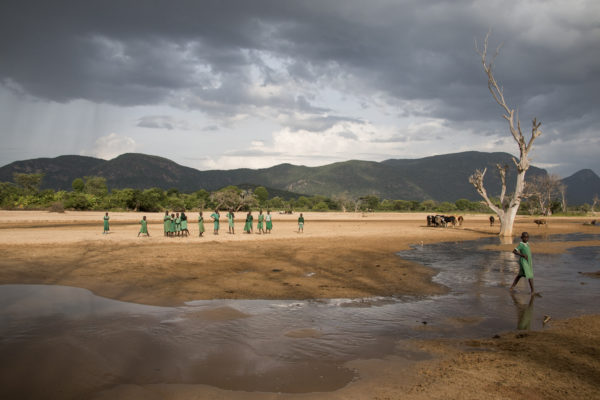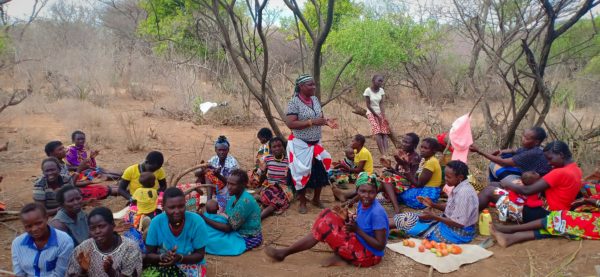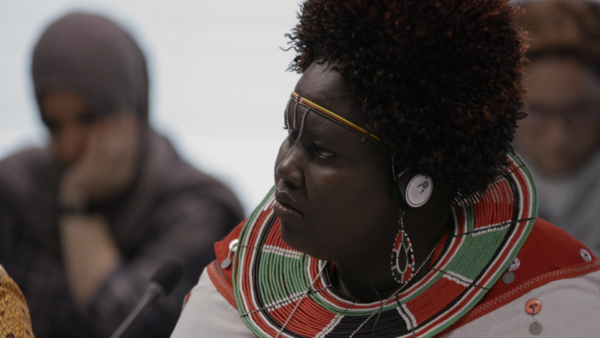ActionAid’s Gender Responsive Alternatives to Climate Change (GRACC) project is supporting women in Cambodia, Kenya and Vanuatu to drive policies and advocate for just systems that reduce the impacts of climate change.
In 2019, Mary Kuket travelled with ActionAid from her community in Tangulbei, a settlement in Kenya’s Rift Valley Province, to Geneva, Switzerland to take her message to the global stage – the United Nations. At the Global Platform for Disaster Risk Reduction, she shared the ways in which the women in her community are preparing for and responding to climate change.

“Climate change has destroyed part of my life… Drought hit the area, whereby we lost our all animals… I was the eldest child there. As a girl, my father decided to marry me off at a tender age of 15 years. Because, he wanted to have animals so that they can sustain their livelihood,” says Mary Kuket.
“According to my understanding, I think climate change is being caused by us, human beings, because of destroying our natural trees, and our environment… My daily life is that I’m a community woman at grassroots level… I make sure that other members of the community, especially the women, are also empowered. Because, if a woman is empowered, then we will all be on the same page.”

Across Vanuatu, Kenya and Cambodia, ActionAid is working with over 8,000 women who are taking action to bring about positive changes in their community, so that when the next disaster strikes – they are ready.
“Women at my community organise themselves in [clusters] of small groups and share their experiences, their challenges and their successes. We’re working with more than 5000 women that are forming…the Tangulbei Women Network.
“Before GRACC project came into my life, I could not know how to protect myself and my household during disasters. Also, the women at the community were not able to know, to protect themselves and they were not able to be at decision making levels whereby they can decide on what to do when disasters hit the area.”

“When I came in here, I was amazed. Because what I can take now to my group, is that, women, at all levels face the same challenge. But when empowered, they can be more resilient.”
Mary took her message to the United Nations that women want to, and should be able to participate meaningfully in all decision-making spaces, from the local to the global level. She conveyed that women are already, intrinsically, using their community networks to develop approaches for community resilience to climate change.
“I’ve seen that women are facing the same challenges, but there are different approaches that women use that make them resilient… The help from ActionAid, personally assisted me, because of the empowerment. It has empowered me from where I was until where I am… To also stand and talk in front of many people. It was really hard, but I’m so proud because I was raised this way, and I’ve already empowered other women.”
“[Life in my community] has changed because women are participating now at decision making levels, especially on budget plans, and when the priorities are being prioritised, they’re there to prioritise their needs. Also, we have women who are now at committee levels. There are committees for water, some are committees from the health centres, meaning that they can make decisions on those levels.”